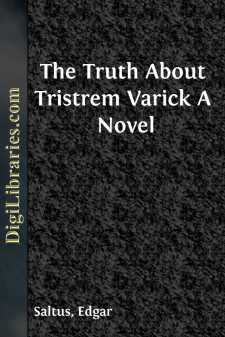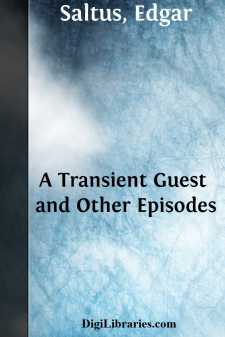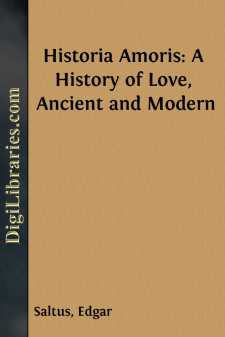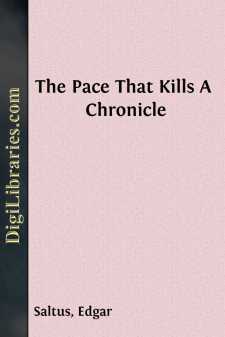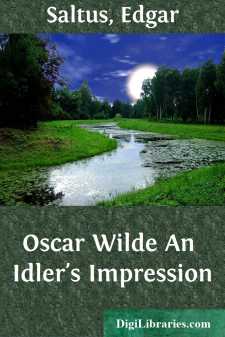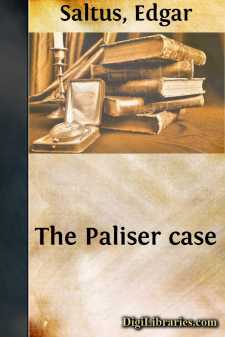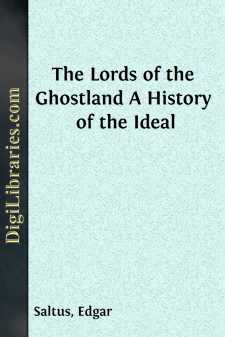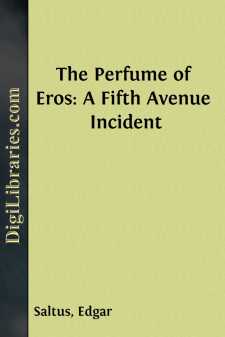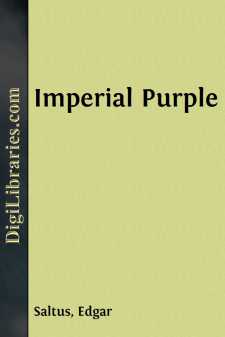Categories
- Antiques & Collectibles 13
- Architecture 36
- Art 48
- Bibles 22
- Biography & Autobiography 813
- Body, Mind & Spirit 142
- Business & Economics 28
- Children's Books 15
- Children's Fiction 12
- Computers 4
- Cooking 94
- Crafts & Hobbies 4
- Drama 346
- Education 46
- Family & Relationships 57
- Fiction 11828
- Games 19
- Gardening 17
- Health & Fitness 34
- History 1377
- House & Home 1
- Humor 147
- Juvenile Fiction 1873
- Juvenile Nonfiction 202
- Language Arts & Disciplines 88
- Law 16
- Literary Collections 686
- Literary Criticism 179
- Mathematics 13
- Medical 41
- Music 40
- Nature 179
- Non-Classifiable 1768
- Performing Arts 7
- Periodicals 1453
- Philosophy 64
- Photography 2
- Poetry 896
- Political Science 203
- Psychology 42
- Reference 154
- Religion 513
- Science 126
- Self-Help 84
- Social Science 81
- Sports & Recreation 34
- Study Aids 3
- Technology & Engineering 59
- Transportation 23
- Travel 463
- True Crime 29
The Truth About Tristrem Varick A Novel
by: Edgar Saltus
Description:
Excerpt
It is just as well to say at the onset that the tragedy in which Tristrem Varick was the central figure has not been rightly understood. The world in which he lived, as well as the newspaper public, have had but one theory between them to account for it, and that theory is that Tristrem Varick was insane. Tristrem Varick was not insane. He had, perhaps, a fibre more or a fibre less than the ordinary run of men; that something, in fact, which is the prime factor of individuality and differentiates the possessor from the herd; but to call him insane is nonsense. If he were, it is a pity that there are not more lunatics like him.
It may be that the course of conduct which he pursued in regard to his father's estate served as basis to the theory alluded to. At the time being, it created quite a little stir; it was looked upon as a piece of old-world folly, an eccentricity worthy of the red-heeled days of seigneurial France, and, as such, altogether out of place in a money-getting age like our own. But it was not until after the tragedy that his behavior in that particular was brought up in evidence against him.
The facts in the case were these: Tristrem's father, Erastus Varick, was a man of large wealth, who, when well on in the forties, married a girl young enough to be his daughter. The lady in question was the only child of a neighbor, Mr. Dirck Van Norden by name, and very pretty is she said to have been. Before the wedding Erastus Varick had his house, which was situated in Waverley Place, refurbished from cellar to garret; he had the parlor—there were parlors in those days—fitted up in white and gold, in the style known as that of the First Empire. The old Dutch furniture, black with age and hair-cloth, was banished. The walls were plastered with a lime cement of peculiar brilliance. The floors of the bedrooms were carpeted with rugs that extended under the beds, a novelty in New York, and the bedsteads themselves, which were vast enough to make coffins for ten people, were curtained with chintz patterns manufactured in Manchester to frighten children. In brief, Erastus Varick succeeded in making the house even less attractive than before, and altogether acted like a man in love.
After three years of marriage, Tristrem was born and Mrs. Varick died. The boy had the best of care and everything that money could procure. He was given that liberal education which usually unfits the recipient for making so much as his bread and butter, and at school, at college, and when he went abroad his supply of funds was of the amplest description. Shortly after his return from foreign lands Erastus Varick was gathered to his fathers. By his will he bequeathed to Tristrem a Panama hat and a bundle of letters. The rest and residue of his property he devised to the St. Nicholas Hospital. The value of that property amounted to seven million dollars.
Now Dirck Van Norden had not yet moved from the neighborhood to a better place. Tristrem was his only grandson, and when he learned of the tenor of the will, he shook his fist at himself in the looking-glass and swore, in a bountiful old-fashioned manner which was peculiar to him, that his grandson should not be divested of his rights. He set the lawyers to work, and the lawyers were not long in discovering a flaw which, through a wise provision of the legislature, rendered the will null and void. The Hospital made a bold fight. It was shown beyond peradventure that from the time of Tristrem's birth the intention of the testator—and the intention of a testator is what the court most considers—had been to leave his property to a charitable institution....


